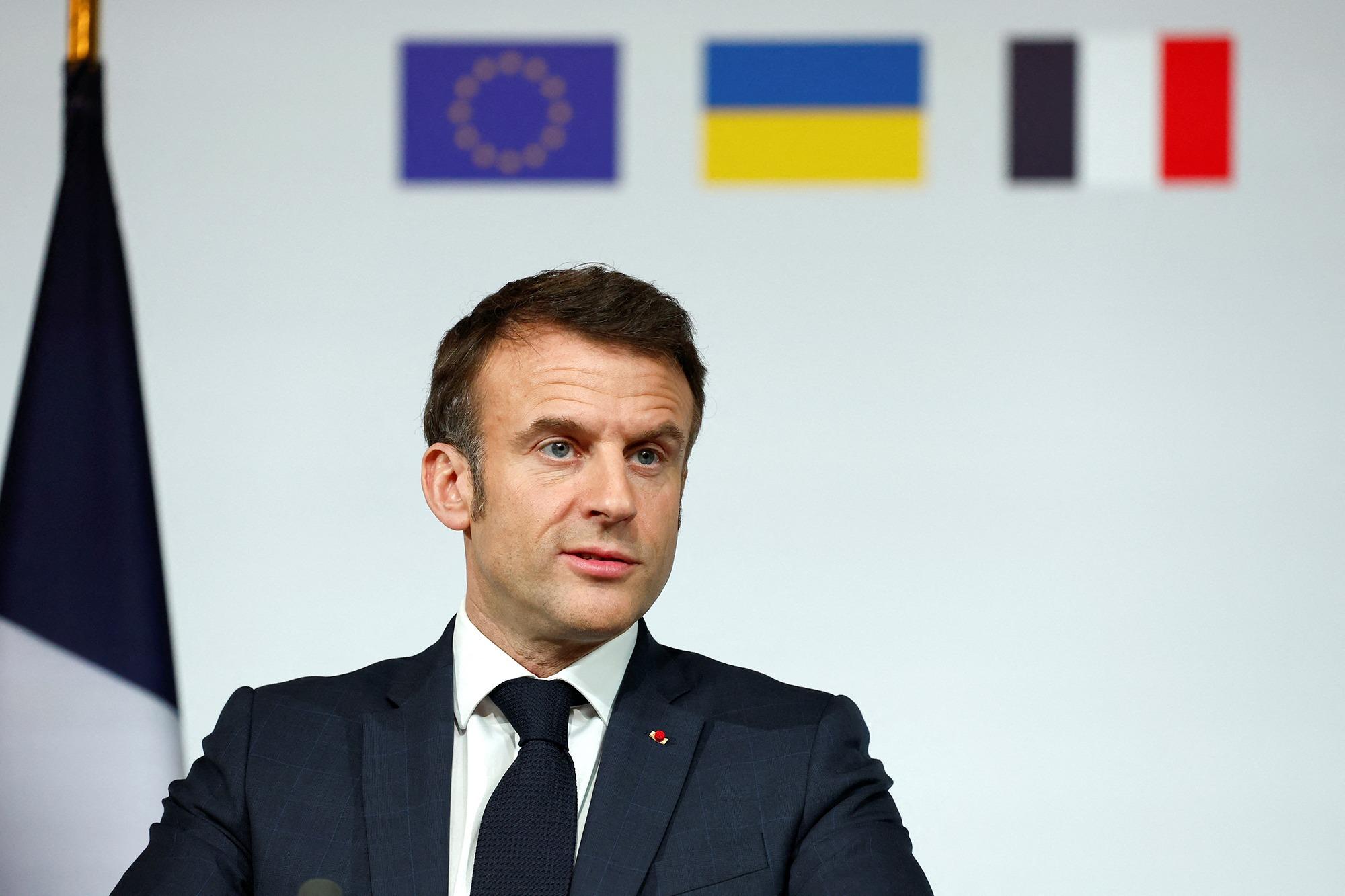European countries rule out sending ground forces to Ukraine as Russia rebukes remarks
 French President Emmanuel Macron speaks during a press conference at the end of the conference in support of Ukraine, with European leaders and government representatives, at the Elysee Palace in Paris, France, Feb 26, 2024. (PHOTO / REUTERS)
French President Emmanuel Macron speaks during a press conference at the end of the conference in support of Ukraine, with European leaders and government representatives, at the Elysee Palace in Paris, France, Feb 26, 2024. (PHOTO / REUTERS)
France’s transatlantic allies on Feb 27 poured cold water on remarks by French President Emmanuel Macron who expressed on Feb 26 that a future deployment of Western troops in Ukraine should not be “ruled out”.
While Macron admitted after European leaders gathered in Paris for a meeting focusing on the Russia-Ukraine conflict that there was no consensus on the issue, he said “Nothing should be ruled out. We will do whatever it takes to ensure that Russia cannot win”.
Moscow has responded strongly to Macron’s remarks. Kremlin spokesman Dmitry Peskov said: “It is absolutely not in the interests of these countries, they should be aware of this.
“In that case, we would need to talk not about the probability, but about the inevitability (of direct conflict),” he said.
READ MORE: European leaders rule out sending troops to Ukraine
German Chancellor Olaf Scholz rejected Macron’s remarks, saying on Feb 27 on X, formerly Twitter, that “We agreed that everyone must do more for Ukraine in Paris yesterday. Ukraine needs weapons, ammunition, and air defense. We are working on it. It is clear: there will be no ground troops from European countries or NATO”.
European Union and NATO members have made it clear since the beginning of the conflict that there will be no boots on the ground from their countries to avoid a direct and wider war with Russia.
Italian Foreign Minister Antonio Tajani reiterated the message that support for Ukraine did not include sending troops. “When we talk about sending troops, we must be very cautious because we must not make people think we are at war with Russia,” he said, adding that “we are not at war with Russia”.
The White House also declared on Feb 27 that it would not send troops to Ukraine.
NATO Secretary-General Jens Stoltenberg told the media that “there are no plans for NATO combat troops on the ground in Ukraine”.
Acting Dutch Prime Minister Mark Rutte, regarded as the lead candidate to be the next NATO secretary-general, said the issue of sending troops was not the focus of the Feb 26 talks.
Slovak Prime Minister Robert Fico said after the meeting on Feb 26 that there was disunity on the issue among European leaders.
Swedish Prime Minister Ulf Kristersson expressed that “it’s not on the cards at all for the moment”.
After a meeting in Prague on Feb 27, Polish Prime Minister Donald Tusk and his Czech counterpart Petr Fiala both rejected the notion that there were plans to involve their troops directly in the conflict.
European Commission spokesman Peter Stano, in reply to a question from China Daily, said this is part of a discussion of member states. “This has not been discussed at the EU level,” he said.
READ MORE: 'Russia-NATO clash inevitable if West sends troops to Ukraine'
French opposition parties have also lashed out at Macron’s remarks. Marine Le Pen, Macron’s major political opponent and the far-right leader in the French parliament, accused the French president of “taking a further step toward belligerence, posing an existential risk to 70 million French people”.
In an attempt to defuse tension, Foreign Minister Stephane Sejourne said on Feb 27 that the French president had in mind sending troops for specific tasks such as helping with mine clearance and cyber defense.
It could require a military on Ukrainian territory, without crossing the threshold of fighting, he told French lawmakers. “It’s not sending troops to wage war against Russia.”
On March 2, Li Hui, special representative of the Chinese Government on Eurasian Affairs, will return to Russia, the EU headquarters, Poland, Ukraine, Germany, and France, nine months after Li visited these destinations on his first round of shuttle diplomacy promote a political settlement of the Ukraine crisis.
China’s Foreign Ministry spokeswoman Mao Ning, who announced the visit, said on Feb 28 that the most urgent priority is to restore peace. “The sooner the peace talks begin, the less the damage is done,” she told a regular news conference.
Last February, China issued a paper expounding its position on the political settlement of the Ukraine crisis, calling for an end to the conflict.
Agencies contributed to this story.
Contact the writers at chenweihua@chinadaily.com.cn


